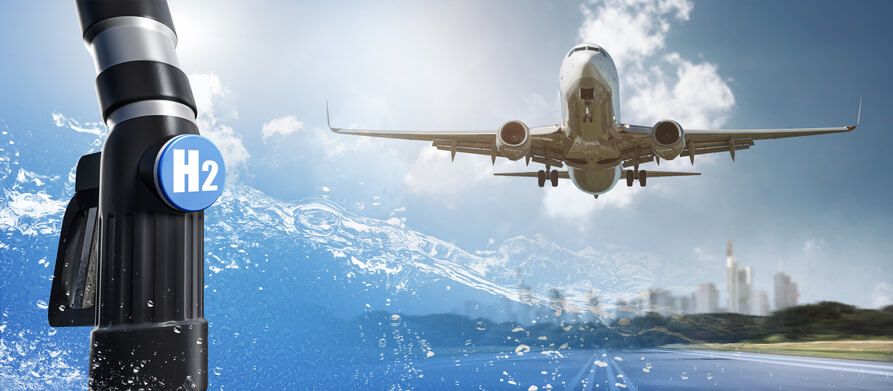4 Industry Applications for Hydrogen Fuel Cells

Today, hydrogen fuel cell applications are endless. Hydrogen power offers energy efficiency, versatility, and zero carbon emissions from transportation to emergency backup generators. Combined with the convenience of onboard liquid hydrogen storage, hydrogen fuel cells are the future of renewable fuel.
In our guide to hydrogen fuel cell applications, we’ll go over how hydrogen can be used to reduce greenhouse gas emissions while promoting renewable energy.
1. Transportation
The future of transportation depends on lowering carbon emissions, using less fuel, and reducing dependence on fossil fuels. When hydrogen is used in an internal combustion engine, it produces only electricity, heat, and water vapor as byproducts instead of toxic carbon emissions.
In addition, by using a clean-burning fuel, hydrogen fuel cells are much more environmentally friendly than traditional gasoline engines.
Here are six of the most significant hydrogen fuel cell applications in the transportation sector today.
Personal Vehicles
Finding an accessible, convenient alternative to gasoline-powered vehicles is one of the biggest challenges in renewable energy. Although battery-powered electric cars emit zero carbon emissions, their limited battery life restricts them to urban living and short-distance travel.
In comparison, liquid hydrogen is stored under high pressure, so it can be stored in a vehicle to refuel, just like a regular car. This makes hydrogen fuel cell vehicles much better suited to long-distance travel and eliminates the need for time-consuming recharging sessions.
Trucks and Utility Vehicles
The efficiency of hydrogen fuel cell applications offers many benefits for utility vehicles as well. For example, Hyundai’s latest hydrogen-powered fuel cell trucks have a driving range of up to 500 miles, making them well suited for commercial fleet applications.
Although trucks make up only 10 percent of all vehicles on the road, they emit 40 percent of carbon emissions. This is expected to increase with the rise of e-commerce and the global supply chain. By upgrading existing trucks with hydrogen fuel cell technology, we can mitigate the effects of carbon emissions caused by the trucking industry.
Fuel Cell Buses
Like their car counterparts, electric buses emit zero carbon emissions, making them an ideal solution in urban areas where people depend on public transportation. In addition to producing no harmful air pollutants, fuel cell buses also provide a much quieter, more comfortable ride for their passengers.
Airplanes
Air travel makes up about 2.5 percent of carbon emissions worldwide, but this has doubled in the past 50 years. The aerospace industry has long been at the forefront of hydrogen fuel cell technology. Hydrogen fuel cells have been used to power auxiliary electric systems on spacecraft for years.
The same technology can be applied to airplanes, using hydrogen fuel cells and modified gas-turbine engines in a highly efficient hybrid-electric propulsion system. Other experimental projects have used a hybrid system where hydrogen fuel cells were restored by solar-powered electricity.
Boats and Submarines
Hydrogen fuel cells for water-based transportation have many applications, including ships, boats, and submarines. For example, the Energy Observer used onboard solar panels and wind turbines to produce hydrogen for its fuel cell system. Like cars, boats and submarines can store compressed hydrogen on board for easy refueling anytime.
Electric Scooters and Bicycles
In many high-density urban areas, scooters and bicycles are popular transportation methods due to their size and ease of use. Hydrogen fuel cells can replace the engines for these vehicles, but hydrogen storage poses a problem.
Because scooters and bikes are pretty small, they do not have enough space to store highly pressurized hydrogen fuel onboard. Therefore, hydrogen fuel cell applications should also include researching metal hydrides and electrolyzers as alternative ways to store and refuel with hydrogen.
2. Drones
Short for unmanned aerial vehicles, UAVs (or drones) have become very popular among consumers and businesses alike. However, drones are often drastically limited by their range and power due to standard batteries. With hydrogen fuel cells, UAVs can reach up to three times the range of battery-powered drones.
3. Primary and Backup Power Generation Source
Having a backup power source is no longer optional for your business. If your primary energy source is disrupted, your backup power source will kick in to provide power. In remote areas with unreliable internet connectivity, a stable power source is even more critical.
Hydrogen fuel cells are a more effective alternative to batteries because they can operate for ten years or more without losing power or capacity. Backup power fuel cells use proton electrolyte membrane (PEM) technology to provide battery power fueled directly by hydrogen with the immediate convenience of standard batteries.
4. Portable Power
Portable hydrogen fuel cell batteries are long-lasting and easily transported. This makes them an ideal fit for hydrogen fuel cell applications in remote locations with limited power sources. Although rechargeable batteries work well, they are often impractical for many portable uses because of their weight.
Although fuel cell batteries are highly efficient, they do still need a continuous supply of fuel, unlike regular or rechargeable batteries. Space-efficient fuel storage options like methanol and ethanol have further improved the portability of fuel cell batteries, making them a reliable alternative to electric batteries.
Discover the World of Hydrogen Fuel Cell Applications
Since 1975, the demand for hydrogen as an alternative fuel has more than tripled. As a result, many governments worldwide have committed to investing in hydrogen fuel cell infrastructure to support the growth of this industry.
Growing concerns about energy independence, national security, climate change, and more have all contributed to the rising success of hydrogen as a renewable energy source. FASTECH has built more than 30 hydrogen stations for leading corporations and energy providers to date, expanding the hydrogen infrastructure to promote hydrogen fuel cells.
To learn more, contact us today.




